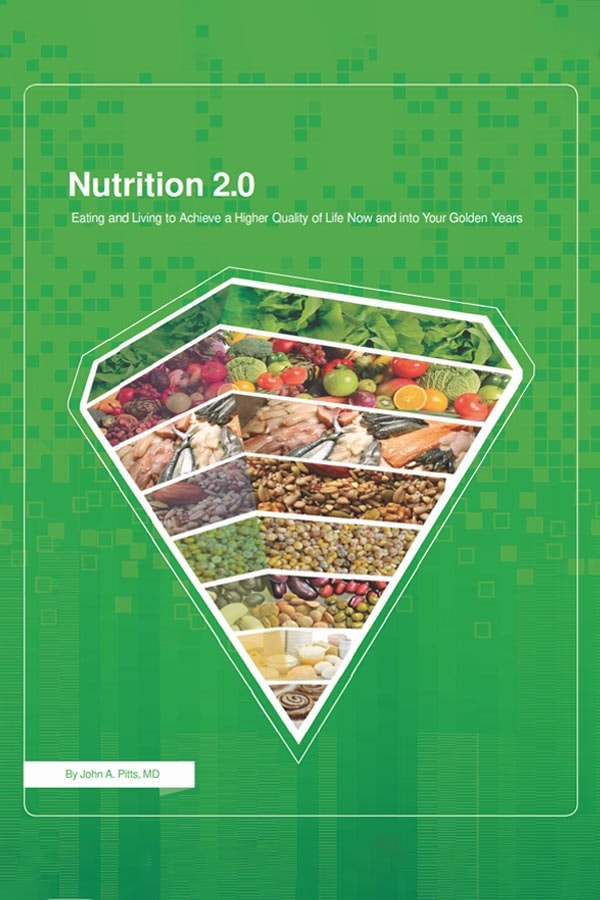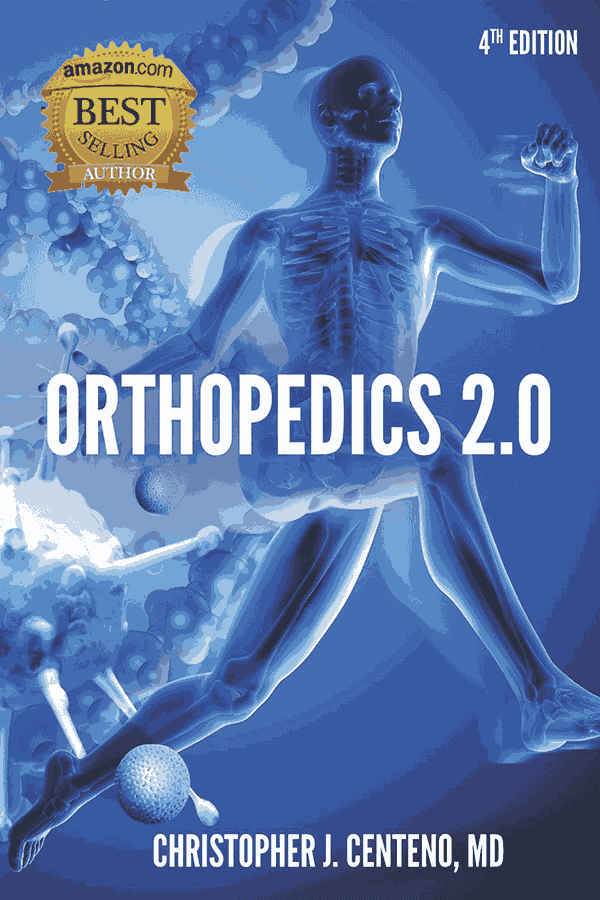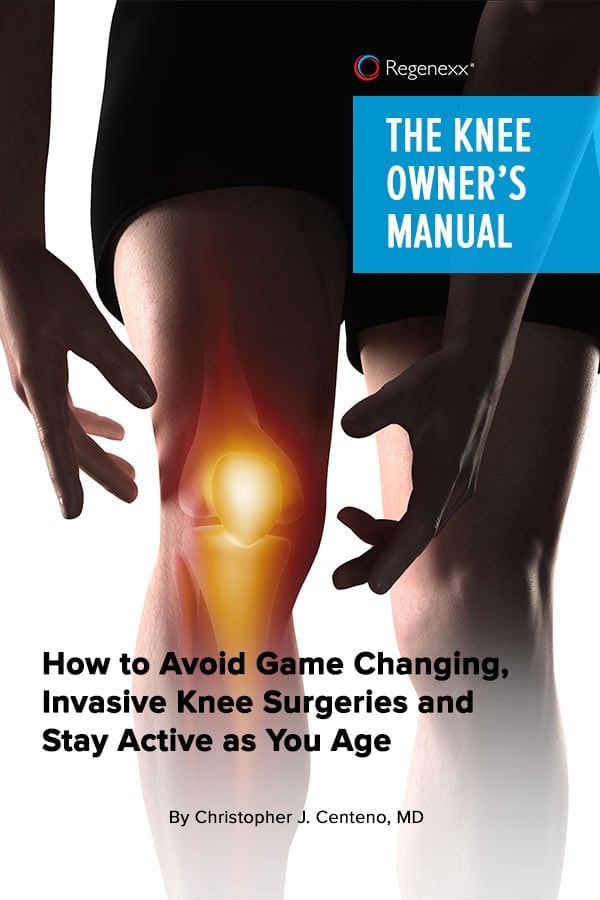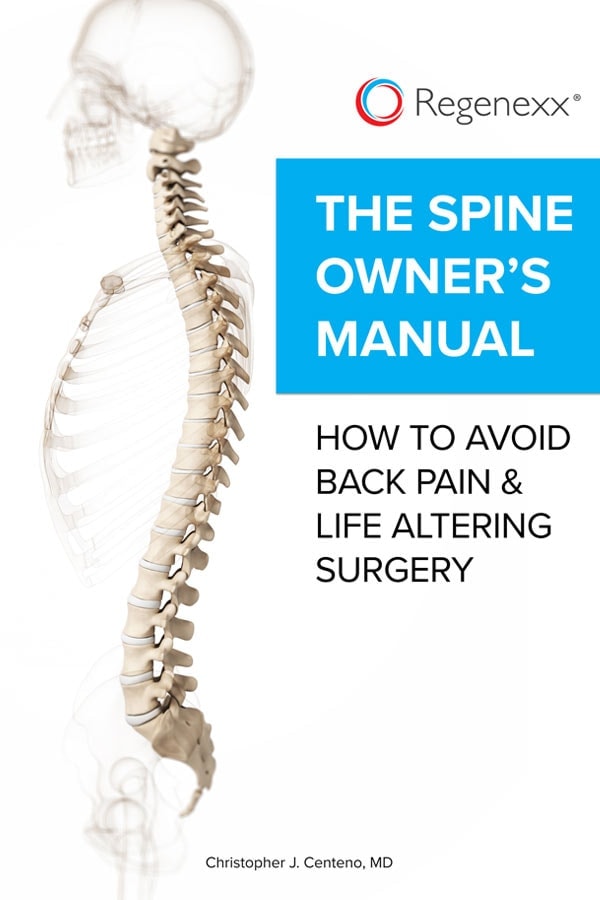Nutrition 2.0

Nutrition 2.0 is a concise guide to eating and living healthy, written by Regenexx regenerative medicine doctor, John Pitts. The book gives a basic foundation of information on mostly diet, but also supplements, physical activity, and stress-relief to improve your life. It explains complex topics in simple terms. The book reveals the negative effects of sugar and high glycemic index carbohydrates and differentiates between “good” and “bad” sources of protein and fats. Dr. Pitts’ food pyramid is a much needed update to the outdated food pyramid the FDA recommends. This book also dispels common nutrition myths, discusses some common supplements, and gives practical advice on how to obtain an appropriate amount of physical activity.
Following the suggestions given in the guide can help you feel and look younger, prevent and supplement treatment of chronic diseases, maintain an active lifestyle, plus help you lose weight in a healthy way and keep it off. This guide is not a magic formula or quick fix program that will suddenly cure all your ailments. Nutrition 2.0 teaches you simple measures that you can implement into your daily life that require some adjustment, commitment, and dedication, but will provide a lifetime of results.
Orthopedics 2.0

- More than 146,699 downloads to date!
- Available as a Free PDF download below, or as a Kindle Book from Amazon – It’s a #1 Best Seller!
Written by Dr. Chris Centeno, this e-book delves into the human musculoskeletal system and explains how everything works together in concert to maintain our physical wellbeing. When a single component in this chain is damaged, it can lead to a cascade of joint, spine and connective tissue problems, resulting in chronic pain.
Using the Regenexx SANS approach, Orthopedics 2.0 walks you through a series of tests and exercises that you can do on your own to better understand where your own body is struggling to maintain proper stability and alignment, explaining the possible reasons and long term implications along the way. Orthopedics 2.0 also explores how Regenexx is pioneering the new field of Interventional Orthopedics, where the use of regenerative biologic treatments, such as adult bone marrow concentrate and platelet rich plasma, are being used to help repair and strengthen damaged tissues, as opposed to invasive surgeries that often remove important tissues when a joint or the spine becomes damaged.
With hyperlinks to more detailed information, related studies and commentary, this book condenses a vast amount of data and resources into an enjoyable and entertaining read. This is the fourth edition of Orthopedics 2.0 with even more content and graphics.
The Knee Owner’s Manual

This e-book by Dr. Chris Centeno examines the knee and its role within the human musculoskeletal system and the body as a whole. Using the Regenexx SANS approach, The Knee Owner’s Manual provides a series of tests and clearly defined exercises that you can do on your own to measure and monitor your own knee health. It will allow you to investigate where your own body might be struggling to maintain proper stability, articulation, symmetry, and neuromuscular function and will help you make the connections between these deficiencies in other parts of the body and the knee. The Knee Owner’s Manual also explores how Regenexx is pioneering the new field of interventional orthopedics, where the use of regenerative biologic treatments, such as adult bone marrow concentrate and platelet rich plasma, are being used to help repair and strengthen damaged tissues not only in the knee but in the entire musculoskeletal system. This is contrasted with invasive knee surgeries, which often remove important tissues or replace the entire knee itself when it becomes damaged. With hyperlinks to more detailed information, related studies, and commentary, this book condenses a vast amount of data, images, and resources into an enjoyable and informative read. This is the first edition of The Knee Owner’s Manual, a companion book to Orthopedics 2.0.
The Spine Owner’s Manual

Written by Dr. Chris Centeno, this e-book delves into the spine and how it functions within the human musculoskeletal system and the body as a whole. Everything within the body works together, like a precisely tuned symphony, to support our well-being, and a healthy spine and all of its component parts (e.g., spinal nerves, ligaments, muscles, etc.) are critical to full-body health. When a single component in the spinal chain is damaged, it can lead to a cascade of problems not only in the musculoskeletal system but throughout the body and even further spinal damage when it goes untreated. The result is chronic pain anywhere in the body that with the proper diagnostic approach can be traced back to the damage in the spine.
Using the Regenexx SANS approach, The Spine Owner’s Manual provides a series of tests and clearly defined exercises that you can do on your own to measure and monitor your own spinal health. It will allow you to investigate where your own body might be struggling to maintain proper stability, articulation, symmetry, and neuromuscular function and will help you make the connections between these deficiencies in other parts of the body and the spine.